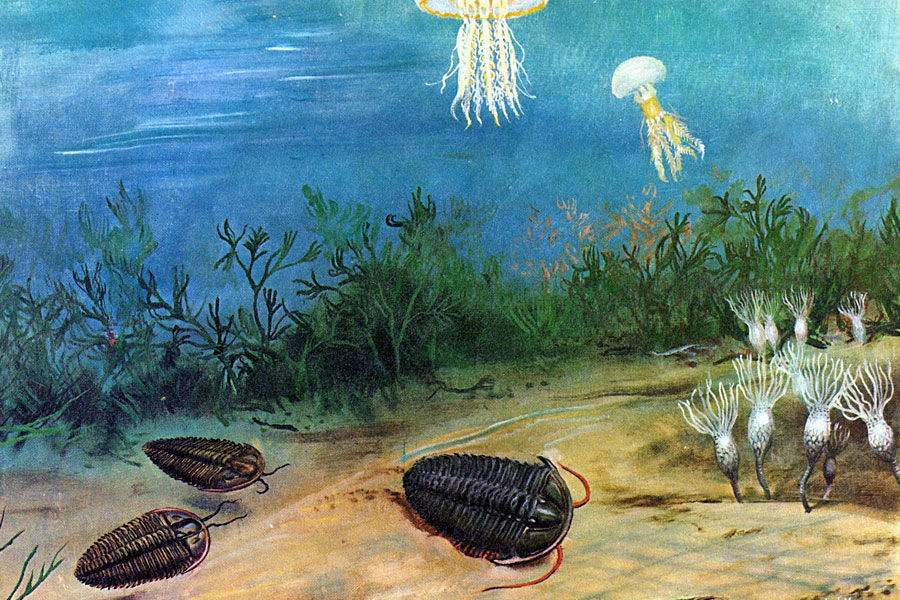Fred Hoyle and his colleague Chandra Wickramasinghe further eroded enthusiasm for panspermia by suggesting that outer space brought us not only life but also many diseases such as flu and bubonic plague, ideas that were easily disproved by biochemists.
我們已經在第三章里提到,弗雷德·霍伊爾和他的同事錢德拉·威克拉馬辛格認為,外層空間不但給我們帶來了生命,而且帶來了許多疾病,如流感和腺鼠疫,這就進一步削弱了胚種說的影響。生物化學家們很容易駁斥那些觀點。
Whatever prompted life to begin, it happened just once. That is the most extraordinary fact in biology, perhaps the most extraordinary fact we know. Everything that has ever lived, plant or animal, dates its beginnings from the same primordial twitch. At some point in an unimaginably distant past some little bag of chemicals fidgeted to life. It absorbed some nutrients, gently pulsed, had a brief existence.
無論是什么事導致了生命的開始,那種事只發生過一次。這是生物學一最非同對常的事實,也許是我們所知道的最不尋常的事實。凡是有過生命的東西,無論是植物還地動物,它的始發點都可以追溯到同一種原始的抽動。在極其遙遠的過去,在某個時刻,有一小囊化學物質躁動一下,于是就有了生命。它吸收營養,輕輕地搏動幾下,經歷了短暫的存在。

This much may have happened before, perhaps many times. But this ancestral packet did something additional and extraordinary: it cleaved itself and produced an heir. A tiny bundle of genetic material passed from one living entity to another, and has never stopped moving since. It was the moment of creation for us all. Biologists sometimes call it the Big Birth.
這么多情況也許以前發生過,也許發生過多次。但是,這位老祖宗小囊干了另一件非同尋常的事:它將自己一分為二,產生了一個后代。一小代遺傳物質從一個生命實體轉移給了另一個生命實體,此后就這樣延續下去,再也沒有停止過。這是個創造我們大家的時刻。生物學家有時候將其稱之為“大誕生”。
Wherever you go in the world, whatever animal, plant, bug, or blob you look at, if it is alive, it will use the same dictionary and know the same code. All life is one, says Matt Ridley.
“無論你到世界的什么地方,無論你看到的是動物、植物、蟲子還是難以名狀的東西,只要它有生命,它就會使用同一部詞典,知道同一個代碼。所有的生命都是一家。”馬特·里德利說。












